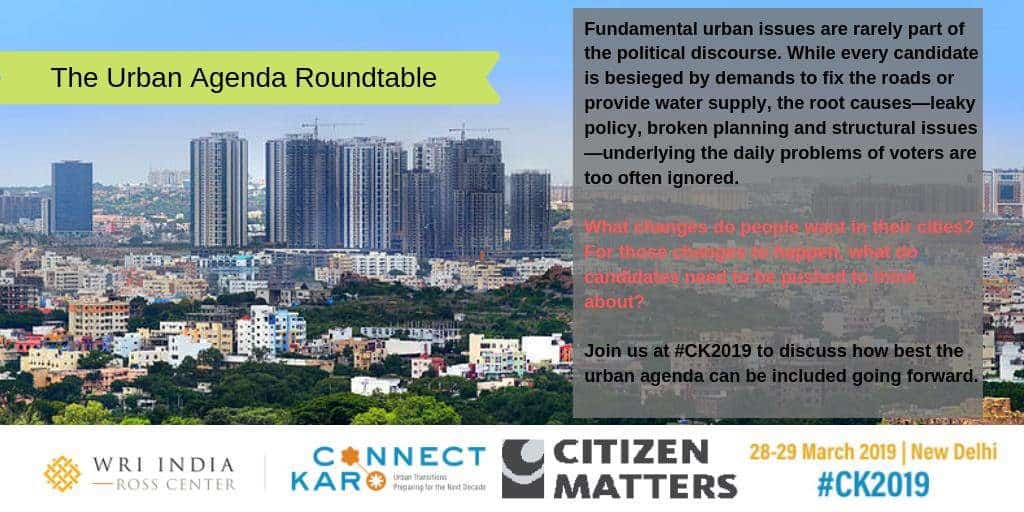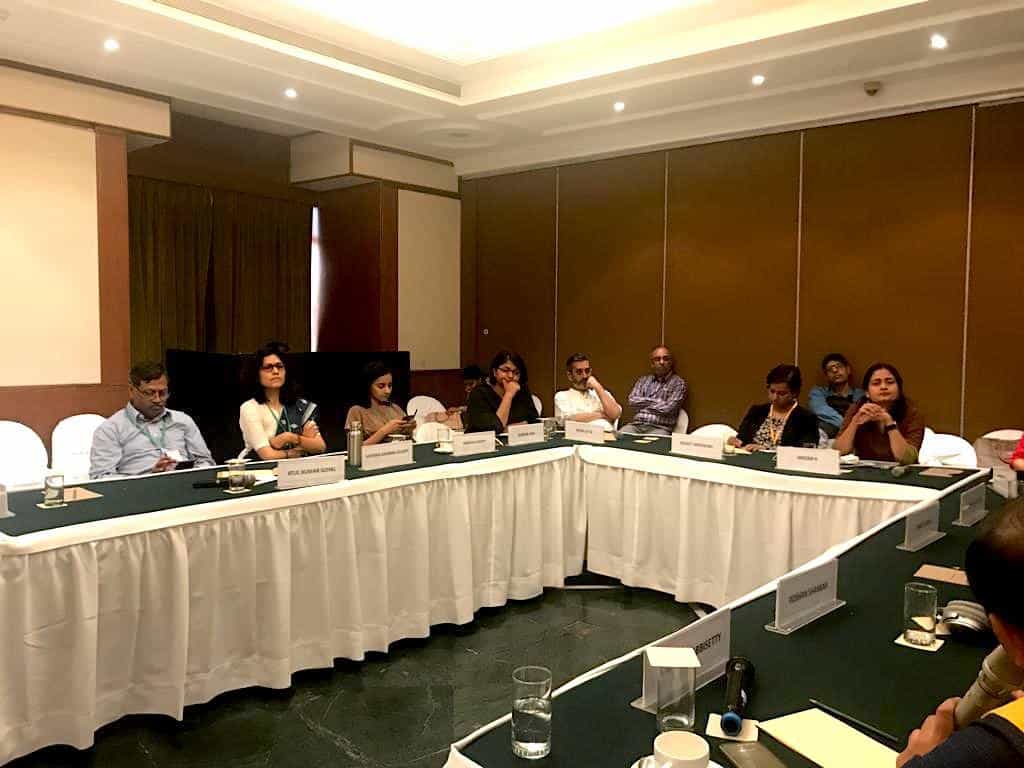“Our urban crisis remains marginal to the political debate” – Peter Dreier
As part of World Resource Institute’s Connect Karo 2019 conference, we hosted the Citizen Matters’ Roundtable on The Urban Agenda. It was held at the India Habitat Center, New Delhi on March 29, 2019.
Fundamental urban issues are rarely part of the political discourse. While every candidate is besieged by demands to fix the roads or provide water supply, the root causes—leaky policy, broken planning and structural issues—underlying the daily problems of voters are too often ignored. What changes do people want in their cities? For those changes to happen, what do candidates need to be pushed to think about?

Have dialogues and concerns around environment and sustainability in Indian cities, especially among citizens and activists, matured to the point where they could influence political discourse and agenda-setting ahead of the Parliamentary elections in the country?What would it take to make our political leaders sit up and take note of these issues in our cities?
The roundtable saw diverse participation, with eminent journalists, domain experts, activists, citizens and even political representatives sharing their insights on how they saw citizen movements and what could be done to make these more effective. The participants included Aniruddh (IGSSS), Kanchi Kohli (CPR), Gunjan Jain(GSCC), Roshan Shankar (AAP), Mridula Koshy (TCLP), Monika Khanna Gulati, Rejeet Mathews (WRI), Nitin Sethi (Business Standard), Shivani Singh (HT), Atul Goyal (citizen), Pawan Mulukutla (Bosch) and others.
In summary, the points raised by the different speakers — based on their years of experience in respective domains — pointed to the need for greater democratisation of these issues and the role of media in highlighting the problems as well as systemic solutions.Some of the key points that were raised in the discussion related to:
- The need to get rid of rigid binaries in urban dialogue — pitting one versus the other. Questions of environment and social justice are deeply linked and ought to be seen as such. Urban environmental crisis is often created by blatant regulatory and institutional failures, and these should be studied closely.
- The need to widen the ambit of citizens who participate in such dialogues; create more thinkers and participants in all sections and classes of society.
- The need for more visibility of the problems and demands of people at the grassroots level; these are often not prominent enough in urban dialogues.
- The need to work towards removing the disconnect between political representatives and the elite civil society groups that typically engage in sustainability dialogues; to take dialogues around environment and liveability out of echo chambers and engage with local governments, across successive terms and elected heads.
- The need to consistently push two or three large ideas and work with local as well as state level representatives. Also, citizens must understand the way the political economy works — what influences the decisions of governments and leaders when it comes to policy making on environmental or sustainability issues? Who stands to lose financially when any such decision is made? Can citizen movements rise above institutional backlash and scrutinise the functioning of the political economy?
- The importance of ward level consultations that could provide a critical link between what citizens want locally and what the government is planning at a policy level.
In conclusion, more knowledge, more transparency and more inclusion could make citizen movements more potent in terms of influencing or shaping the urban agenda.

